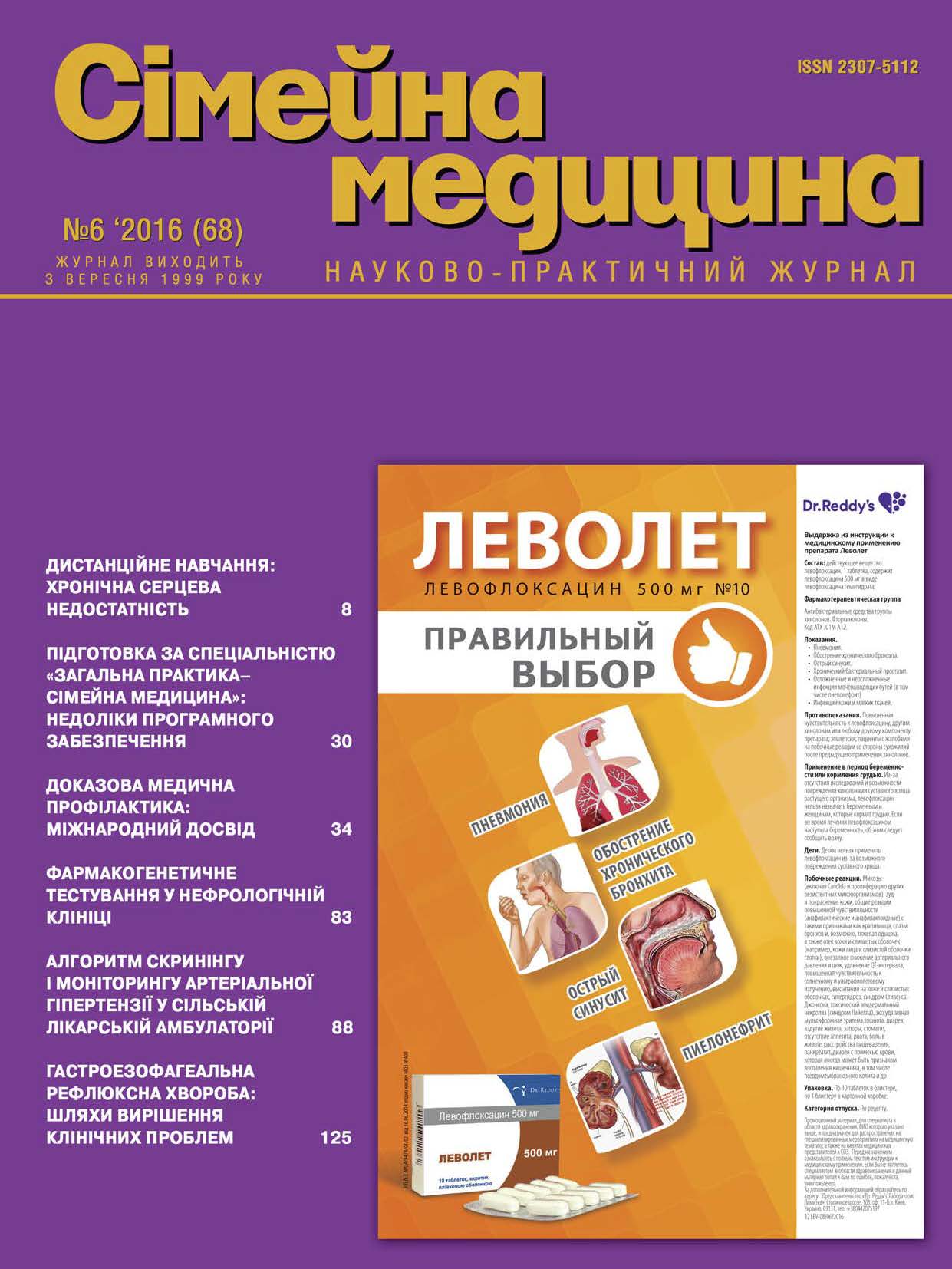Pharmacogenetic Testing in Nephrological Clinic
##plugins.themes.bootstrap3.article.main##
Abstract
Selection of antihypertensive agents using pharmacogenetic tests and individual tolerance is essential in nephrology. Antihypertensive drugs are metabolized first line through various isoforms CYP (CYP2D6, CYP2C9, CYP2C19 and CYP3A4/5). These isoforms are the most significant for the patient in response to drug response. From a clinical point of view, it is important to establish the slow metabolizers (poor metabolism, PM), because it is they need to use other doses of antihypertensive drugs that different from the standard.
##plugins.themes.bootstrap3.article.details##

This work is licensed under a Creative Commons Attribution 4.0 International License.
Authors retain the copyright and grant the journal the first publication of original scientific articles under the Creative Commons Attribution 4.0 International License, which allows others to distribute work with acknowledgment of authorship and first publication in this journal.
References
Kidney Disease: Improving Global Outcomes (KDIGO) CKD Work Group. KDIGO 2012 Clinical Practice Guideline for the Evaluation and Management of Chronic Kidney Disease. Kidney inter., Suppl. 2013;3:1-150.
Grassi G. Sympathetic overdrive in hypertension: clinical and therapeutic relevance. The e-journal of the ESC Council for Cardiology Practice. – Vol. 13, № 36–24 Nov 2015.
Ivanov D. Почки. Нирки. Kidneys. – 2016, 1(16). – Р. 16.
Turner S.T., Schwartz G.L., Chapman A.B. et al. Antihypertensive pharmacogenetics: getting the right drug into the right patient. J Hypertension 2001;19: 1-11.
Cacabelos R (2012) The Metabolomic Paradigm of Pharmacogenomics in Complex Disorders. Metabolomics 2:e119.
International Consortium for Blood Pressure Genome;Wide Association Studies et al, Genetic variants in novel pathways infl uence blood pressure and cardiovascular disease risk. // Nature. – 2011. – V. 478. – P. 103-9.
Schwartz GL, Turner ST (2004) Pharmacogenetics of antihypertensive drug responses. Am J Pharmacogenomics 4:151-160.
Kirchheiner J, Seeringer A (2007) Clinical implications of pharmacogenetics of cytochrome P450 drug metabolizing enzymes. Biochim Biophys Acta 1770: 489-494.
Flockhart DA, Tanus;Santos JE (2002) Implications of cytochrome P450 interactions when prescribing medication for hypertension. Arch Intern Med 162: 405-412.
Ingelman-Sundberg M (2004) Pharmacogenetics of cytochrome P450 and its applications in drug therapy: the past, present and future. Trends Pharmacol Sci 25: 193-200.
Kreutz R (2004) Pharmacogenetics of antihypertensive drug response. Curr Hypertens Rep 6: 15-20.
Cacabelos R (Ed) (2012) World guide for drug use and pharmacogenomics. EuroEspes Publishing, Corunna.
Höcht C, Bertera FM, Mayer MA, Taira CA (2010) Issues in drug metabolism of major antihypertensive drugs: beta-blockers, calcium channel antagonists and angiotensin receptor blockers. Expert Opin Drug Metab Toxicol 6(2):199-211.
Siest G, Jeannesson E, Visvikis-Siest S (2007) Enzymes and pharmacogenetics of cardiovascular drugs. Clin Chim Acta 381: 26-31.
Rodríguez Arcas MJ, García-Jiménez E, Martínez-Martínez F, Conesa-Zamora P (2011) Role of CYP450 in pharmacokinetics and pharmacogenetics of antihypertensive drugs. Farm Hosp 35: 84-92.
Torrellas C., Carril J.C., Cacabelos R. Benefits of Pharmacogenetics in the Management of Hypertension. J Pharmacogenomics Pharmacoproteomics 2014, 5:1–7.
http://www.health-medix.com/articles/misteztvo/2009-03-24/7-14.pdf
Polimanti R, Iorio A., Piacentini S. et al. Human pharmacogenomic variation of antihypertensive drugs: from population genetics to personalized medicine. Pharmacogenomics. 2014; 15(2): 157-67.





